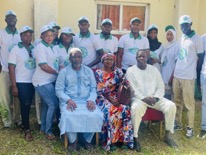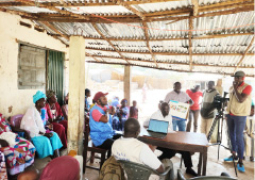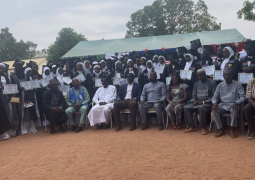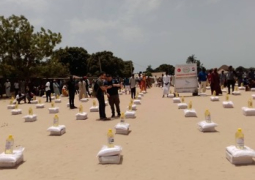
The training program was organised by the West Africa Network for the Protection of the Rights of Migrants, Refugees, Asylum Seekers and Free Movement. The theme for the occasion was “Capacity Building of Civil Society on Migration and Refugees.”
Speaking at the opening ceremony on Saturday, Mamadou Ramata Bah, country coordinator for the West Africa Network for the Protection of the Rights of Migrants, Refugees, Asylum Seekers and Free Movement said the training was hosted for the first time in The Gambia for journalists to have knowledge on pressing issues and the effects of irregular migration.
She stressed that journalists play a pivotal role in the dissemination of information that helps address issues of irregular migration. She said members of the network include West African countries such as Senegal, Guinea, Mali and Mauritania, among others.
She urged participants to take advantage of the training which she said will yield a great impact in addressing the issue at hand. She also applauded organizers for facilitating the training and the trainers for the time taken in sharing their knowledge.
Fatoumatta Sanneh-Ceesay, director of TV programs at the Gambia Radio and Television Services who served as the guest speaker noted that West Africa is characterised by a long history of migration due to myriad factors including economic disparities, conflict and environmental changes.
Besides, she said irregular migration poses immense challenges, not only to those undertaking the risky journey, but also to the countries of origin, transit and destination.
She stated that “it is crucial that we, as civil society actors are well-informed and more significantly, we communicate the nuances of this issue effectively to the public and policymakers.”
She added the media can shed light on the challenges, aspirations and vulnerabilities of migrants, fostering a deeper understanding of the factors driving migration.
The media she said “can highlight the root causes of migration, the exploitation, the dangers and the resilience of those involved. By doing this, the media can help shift the discourse from a focus on the legality of migration to the very real human consequences of our regional and global policies.”
Read Other Articles In National News

New Nafa beneficiaries engaged on financial literacy for self-sustenance
Jan 20, 2026, 12:08 PM




